Amherst families to committee: Don’t cut elementary music program
|
Published: 02-14-2024 5:41 PM
Modified: 02-15-2024 3:18 PM |
AMHERST — Some students let their instruments do the talking at a marathon Amherst School Committee hearing Tuesday at which dozens of people pleaded against a plan to eliminate an instrumental music teacher for the town’s three elementary schools.
“Instrumental music can help you learn math skills, like the patterns in the notes,” Declan Prindle, a sixth grader at Crocker Farm School, told the committee at the virtual hearing, before proceeding to play a snippet of “The Lost City” on his saxophone. “It’s also scientifically proven that people who study music learn better, and it’s a fun way to learn and express yourself.”
Eighteen months of instruction have given Judah Bunsacker, a fifth grader at Fort River School, confidence to publicly perform on trumpet, doing so for about 45 seconds for the School Committee. For Judah’s father, Kyle Busacker, the music program engages children socially and interactively, promotes mental health and confronts the “screen time” epidemic.
“This is one of the pivotal programs that has done that for our children,” Busacker said.
“So when we have something that we can agree upon across all walks of life, it is alarming that this is what we choose to reduce funding for. I find it preposterous, to be honest.”
The removal of an instructional music position and the elimination of one special education instructor at both Wildwood and Crocker Farm schools are some of the cuts being proposed in the $26.71 million fiscal year 2025 budget plan unveiled by interim Superintendent Douglas Slaughter, eliciting oral and written feedback from well over 100 families.
While the budget is $777,993, or 3%, over the current year’s $25.93 million, it is $903,971 short of providing level services.
The proposed reductions, along with using $400,000 in remaining Elementary and Secondary School Emergency Relief money, are expected to cover this gap. Along with a preschool paraeducator, more than half of the nearly six positions proposed for elimination at the three elementary schools provide direct instruction, with other cuts in central office staffing and a custodian.
Article continues after...
Yesterday's Most Read Articles
 More than 130 arrested at pro-Palestinian protest at UMass
More than 130 arrested at pro-Palestinian protest at UMass
 ‘Knitting treasure’ of the Valley: Northampton Wools owner spreads passion for ancient pastime
‘Knitting treasure’ of the Valley: Northampton Wools owner spreads passion for ancient pastime
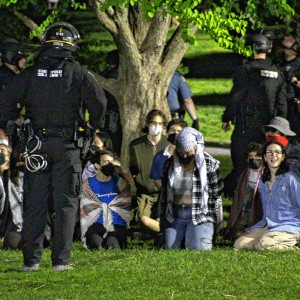 UMass student group declares no confidence in chancellor
UMass student group declares no confidence in chancellor
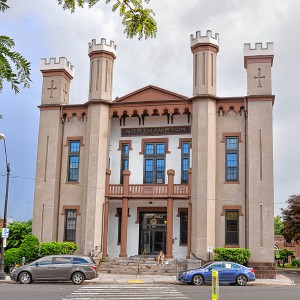 Guest columnist Josh Silver: Northampton school budget — Let’s start with kindness, accuracy and respect
Guest columnist Josh Silver: Northampton school budget — Let’s start with kindness, accuracy and respect
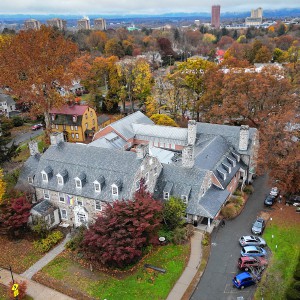 With Jones project in question, Amherst won’t sign lease for temporary digs
With Jones project in question, Amherst won’t sign lease for temporary digs
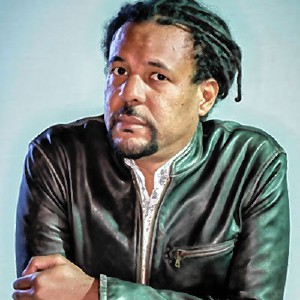 UMass graduation speaker Colson Whitehead pulls out over quashed campus protest
UMass graduation speaker Colson Whitehead pulls out over quashed campus protest
The School Committee will vote on a final budget on March 19, sending this to the Town Council for approval by June 30.
The loss of having one teacher per grade level for special education is troubling, said parent Angelica Bernal, a member of the Special Education Parent Advisory Council.
Along with 165 parents and allies who signed a petition, Bernal read a letter that supports the “dedicated and hardworking” special education teachers and paraeducators.
“The COVID-19 pandemic deeply impacted our special education programming, with extensive shortages and staff turnovers in all these areas,” Bernal said. “Our students in special education were some of the most impacted, resulting for many of our children in regressions, anxiety and uncertainty.”
Slaughter said the district remains committed to the co-teaching model, but can’t sustain its current level of commitment moving forward. Still, he said that while students will lose additional support co-teaching can provide, the district continues to meet the requirements of all individualized education plans, or IEPs.
“We’re still committed to that co-teaching model, but it will be a little more bare-bones than it has been,” Slaughter said.
Under the changes, band and orchestra would start in fifth grade next school year, meaning that the students currently involved will remain so, but this year’s third grade students will have to wait an extra year to take up an instrument.
“Essentially, all of the kids that are currently participating would be able to participate next year,” Slaughter said. “If there are fifth graders who wanted to start, they could.”
But he acknowledged the delay.
“Kids that are currently in third grade going into fourth grade, that opportunity will be diminished in the coming year,” Slaughter said. “These are decisions not made lightly, and it’s very difficult to make these kind of cuts.”
Elementary band teacher Ariel Templeton told the committee she and colleagues Heather Samson and Lincoln Smith have deep concerns about losing the fourth grade strings and band program.
“We are repeatedly told by families that the band and orchestra is what keeps their children going when they are otherwise struggling in school,” Templeton said. “It provides them with a safe space where they feel they belong.”
Across the three elementary schools, 340 students currently participate in band and orchestra, which recently put on concerts at the middle school auditorium.
Others noted that the music program is matter of equity, since many families can’t afford private lessons.
“Cutting the budget to either of the instrumental program parts will crush many students’ hopes, including mine,” said Odin Monesson-Olson, a fifth grader at Crocker Farm.
Fellow Crocker Farm fifth grader Ariadne Hill said she has private lessons for violin, but many of her peers can’t afford them.
“I’m speaking on behalf of all those other people, and also the younger siblings,” Ariadne said, observing that her younger sister can’t wait to be part of orchestra.
“When I heard about the budget cuts to the elementary instrumental program, I was heartbroken, and still am,” said Marisol Pierce Bonifaz, a high school junior who has played violin since attending Wildwood. “The elementary music program is crucial to students’ well-being, education and their music development as they enter into middle and high school ensembles.”
Carolyn Walker, a 2002 Amherst Regional graduate and parent of Fort River and middle school students, fears the impact on a once-stellar program she began in third grade orchestra. “If we cut down this program, it will die,” Walker said.
Erica Drake, undergraduate program director at the University of Massachusetts department of music and dance, said her fourth grader joined the string program as a cellist this year.
“Music serves our children, our community and the greater good in ways that are repeatedly recognized through studies and empirical data, and yet cannot be simply defined and understood well enough to save it from the chopping block when funds get tight,” Drake said.
“The fact is without a vibrant elementary program there is no program at the middle or high school level, especially for strings, which have a very steep learning curve,” said parent Michelle Marinelli Prindle, a professional musician who runs music schools in Easthampton, Florence and Hadley.
Parent Laura Pagliarulo asked about the state’s Fair Share Amendment and the $231 million allocated to K-12 schools and whether Amherst could stave off cuts.
Slaughter said this is unlikely since the impact on Amherst’s budget from the “millionaires tax” is minimal to none.
Others emphasized that cuts, if they need to happen, should be distant from the classrooms.
“It’s not that you can’t sustain, it’s that you’re choosing not to,” said parent Katie Lazdowski, who served last fall on the Amherst School Committee.
“I ask you to cut money from the top, not the bottom,” said parent Laura Jane Hunter.
Hunter observed that payouts given to the last two permanent superintendents total almost $500,000. Maria Geryk received $309,238 for two years when she left in 2016, and Michael Morris is being paid his annual $178,500 salary for 10 months of separation after departing last summer.
“If we need to buy off another superintendent, where does that money come from?” Hunter said.
Scott Merzbach can be reached at smerzbach@gazettenet.com.

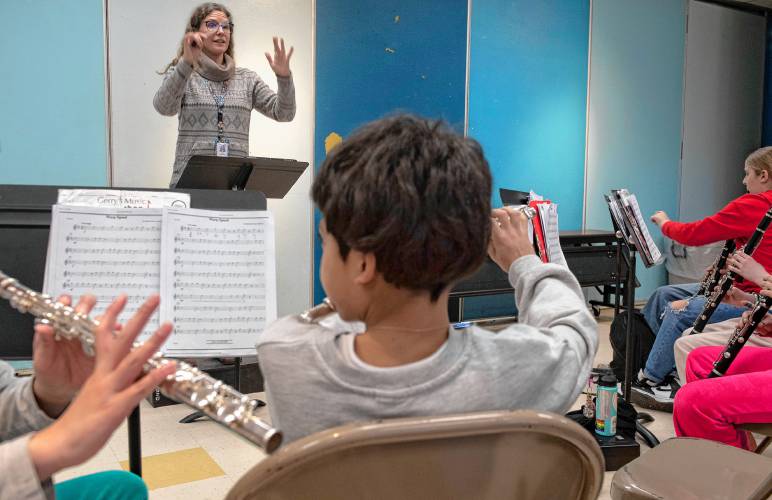
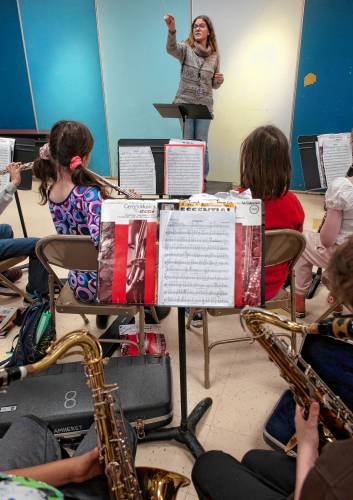
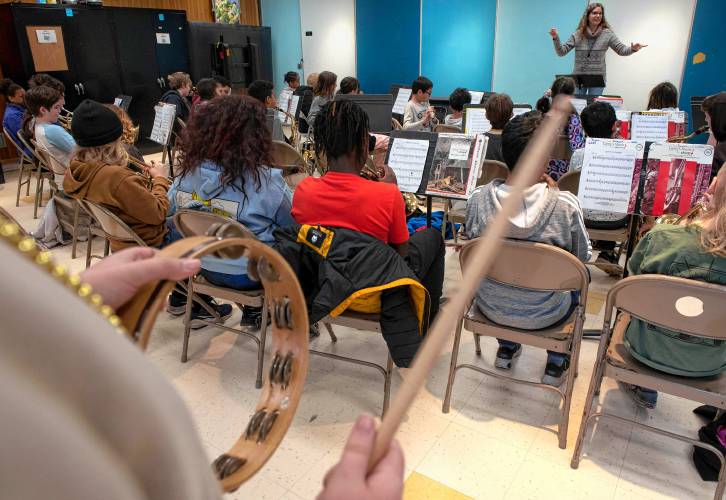
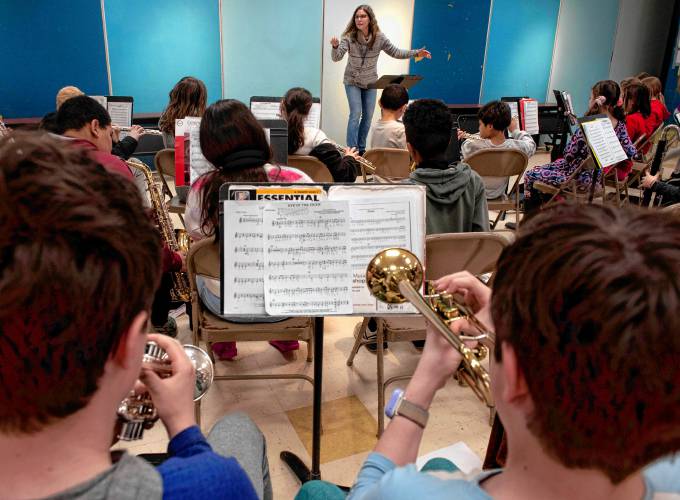
 Valley lawmakers seek shorter license for FirstLight hydropower projects
Valley lawmakers seek shorter license for FirstLight hydropower projects State Senate budget funds free community college for all
State Senate budget funds free community college for all ‘We can just be who we are’: Thousands show support for LGBTQ community at Hampshire Pride
‘We can just be who we are’: Thousands show support for LGBTQ community at Hampshire Pride Doors open at Tilton Library’s temporary home at South Deerfield Congregational Church
Doors open at Tilton Library’s temporary home at South Deerfield Congregational Church
